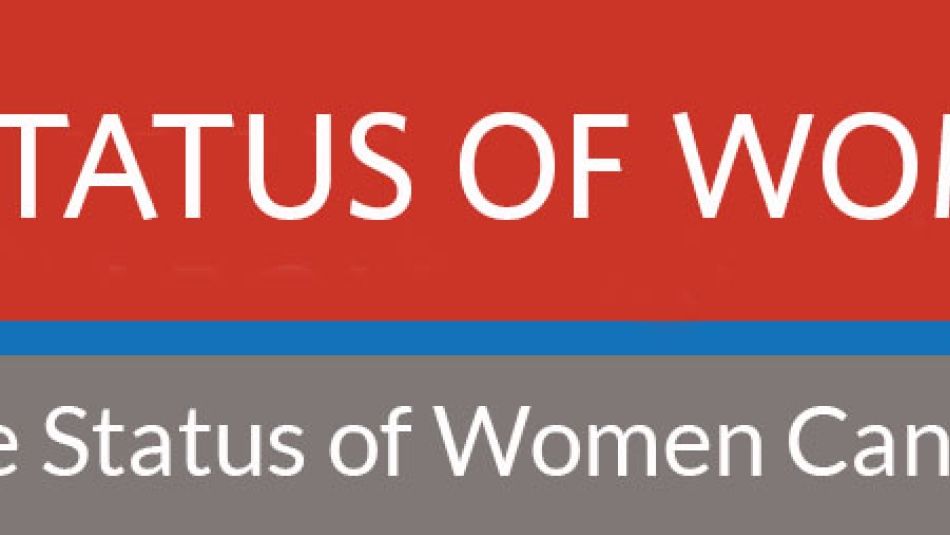
There are more than 100,000 women in Unifor working in every province and territory and in every sector of the economy. Unifor women work in bargaining units where they are the majority, such as in health care, retail and administrative work; and in bargaining units where they are the minority, such as in skilled trades, pilots and heavy equipment operation. We have bargained innovative programs and positions such as our Women’s Advocate position. We currently have more than 300 Women’s Advocates across the country, a bargained position to deal with domestic violence and harassment in the workplace.
Unifor priorities
Although women have achieved legal equality, this is not the same as social equality, economic equality or political equality. Inequality is clear in the on-going gender-based violence, low wages and economic opportunities for women, and the under representation of women in Parliament and other positions of public influence and power. Unifor is committed to advances for women in all of these areas and has a strong record of action. We practice social unionism and, as such, bring our members’ collective strength to the bargaining table and the ballot box. We have passed strong policies on gender equality and take an intersectional approach to our work. Until women have economic independence with full access to decent jobs, social programs, safe and affordable housing, meaningful childcare options, adequate and appropriate health care including reproductive rights, we will not have full equality. The federal government has a strong role to play in each of these areas.
Specific issues and recommendations
Status of Women Offices
The last decade saw an unprecedented attack on women’s equality by the previous Conservative government. Structural changes, such as the closure of most Status of Women Offices across Canada, have undermined the data and support needed to advance equality. Status of Women offices play a key role in promoting equality for women and their full participation in the economic, social and democratic life of Canada. The work of a robust Ministry will contribute to a gender-based analysis that must be applied to proposals before they arrive at Cabinet for decision-making. Unifor recommends:
• Re-opening Status of Women Office across Canada.
Feminist organizations working on gender equality
Feminist organizations across Canada are key to making women’s equality a reality on the ground level. In turn, their experiences and data can help to ground policy at the federal level. The funding model must be changed to remove the prohibitive requirements imposed by the previous government. We welcome the announcement of restoration of the Court Challenges Program which can be an important tool for achieving equality. With a vibrant feminist movement, comes action and innovation that will lead to equality in communities across Canada. Unifor recommends:
• Restoring funding to feminist organizations working on gender equality.
Sexual harassment and violence
Despite a raised awareness and some legislative changes over the last decade, sexual harassment and violence in the workplace still remain at unacceptably high levels for women in the federal sector. Women’s full participation in the workforce is undermined when these are present. The federal government has a key role to play in the development of strategies to combat sexual harassment and violence in federally regulated workplaces including federal public institutions. Unifor recommends:
• Developing strategies to combat sexual harassment and violence.
Gender violence strategy and action plan
We are heartened by the announcements of action around the issue of missing and murdered indigenous women and girls. The actions so far recognize the particular impact of violence in marginalized communities. Eradication of gender-based violence requires a comprehensive strategy and action plan. Unifor was part of a cross-section of groups that developed a Blueprint for Canada’s Action Plan on Violence against Women and Girls. We urge you to review this document and act on it without delay. Unifor recommends:
• Developing a comprehensive federal gender violence strategy and action plan using the consensus Blueprint.
Shelters and transition houses
Along with strong action for the prevention of violence in women’s lives, support must be adequate for women who are survivors of violence. We call on your ministry to ensure there is proper support for Canada’s network of shelters and transition houses. This support must also take into account the working conditions of service providers. Unifor recommends:
• Ensuring support for Canada’s network of shelters and transition houses.
Unpaid caregiving and wage inequity
Women’s participation in the paid workforce has increased over the last decade. However, women still face wage inequality in the workplace and increased pressures due to unpaid care giving responsibilities. We urge you to work with other Ministers, including Ministers Duclos and Mihychuk, to ensure these barriers to equality are removed. Although the responsibility for development of a universal child care program falls under Minister Duclos’ portfolio, we urge you to bring the voices of working women (both as service users and as child care workers) and the goal of equality into those discussions. Unifor recommends:
• Addressing the disproportionate financial insecurity facing women due to unpaid caregiving and wage inequity.
To download a fact sheet about Unifor's priorities for the status of women (PDF) click the link below:


